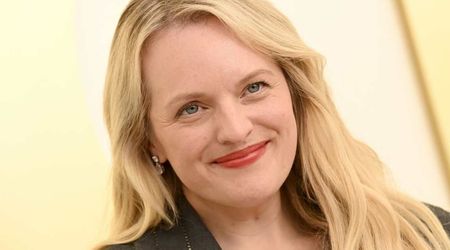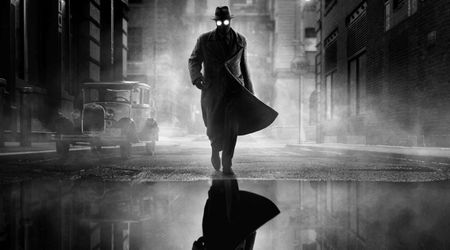Netflix's 'Messiah' Season 1 ending explained: Will the Anti-Christ be revealed?

This article contains spoilers for 'Messiah' Season 1
'Messiah', the much-anticipated thriller series, dropped on Netflix this New Year's and calling it a confusing show would be an understatement. Intentional or not, there were too many unanswered questions throughout the 10-episode streak. Here's what we know about the 'Messiah's' ending.
The show seems to have set out to portray a modern-day depiction of how people would accept the coming of the 'Messiah'. In the days before the show aired, controversy sparked with users offended with the possible introduction of the character 'Al-Masih', which is an Anti-Christ figure in Islam known as 'Al-Masih ad-Dajjal.' The streaming service was under fire and users were blocked from the service for revealing the character's full name. The show, however, never once mentioned the name 'Dajjal' directly.
The show ended did not give viewers answers whether the 'Messiah' was a man suffering from a delusional disorder or the Anti-Christ. However, some scraps of information about the narrative of the main character were thrown our way. The last episode, 'Wages of Sin', took the character's miracle ability to another level, when he seems to be immortal after a plane crash. He also raised people from the dead. We may not know who he is, but he seems to be some sort of 'divine entity.'

He was able to somehow summon natural disasters, such as the storm in Syria, the tornado in Texas and flood in Florida, all of which look real to his followers and us, the viewers. With his real name revealed to be Payam Golshiri and history of psychiatric disorder, everyone is still presented with the one question — Is he coming to save people or destroy them?
Users also noticed a subtle reference to the possibility of Payam being the Anti-Christ. The 'Messiah' tells young Rebecca, a girl from Texas, that she was the reason he came to the state. In Episode 9, 'God is Greater', he trusts Rebecca to deliver his message to a crowded church where Rebecca describes him to be the "eye of the storm". In the Muslim doctrine, 'Al-Masih ad-Dajjal,' the Anti-Christ, is said to have one eye, and users claim that Rebecca might have seen a vision of this during a seizure she suffers after saying those words. A subtle possible hint, maybe?

Another theory may be possible, with the character of Jibril, a young boy who becomes a follower of Payam from Syria to Israel, and calls him 'Imam'. Mostly unharmed by harsh desert conditions, he walks naked towards the Israel border and is let into the Holy Land. This bravery gains him a lot of attention and becomes a prominent figure among Muslims — if Payam is the Anti-Christ, could Jibril be the true; Messiah'? Not to mention, he survived a bomb attack a few feet away from him.
With no real answers from the investigation of CIA Agent Eva Geller and the show not giving hints on what we are to believe, we suspect that although a divine being, the 'Messiah' may not be here for good. We've seen his dark side while he demanded that President Young of the United States withdraws all American troops from everywhere and when he shoots a dog after a young boy asks him to save it. While we love the suspense, we'd like answers, and maybe Season 2 (not confirmed) can help us with that — we're hoping the narrative goes somewhere other than an expected miracle and political corruption.
This thriller series definitely breaks boundaries of cultural and religious terrorism and how the coming of a divine entity can pose more of a threat than possible salvation. The show's narrative moves towards the consequences of having the Messiah in a media-driven world, so the important question of if the 'Messiah' is real won't make too much of a difference.










